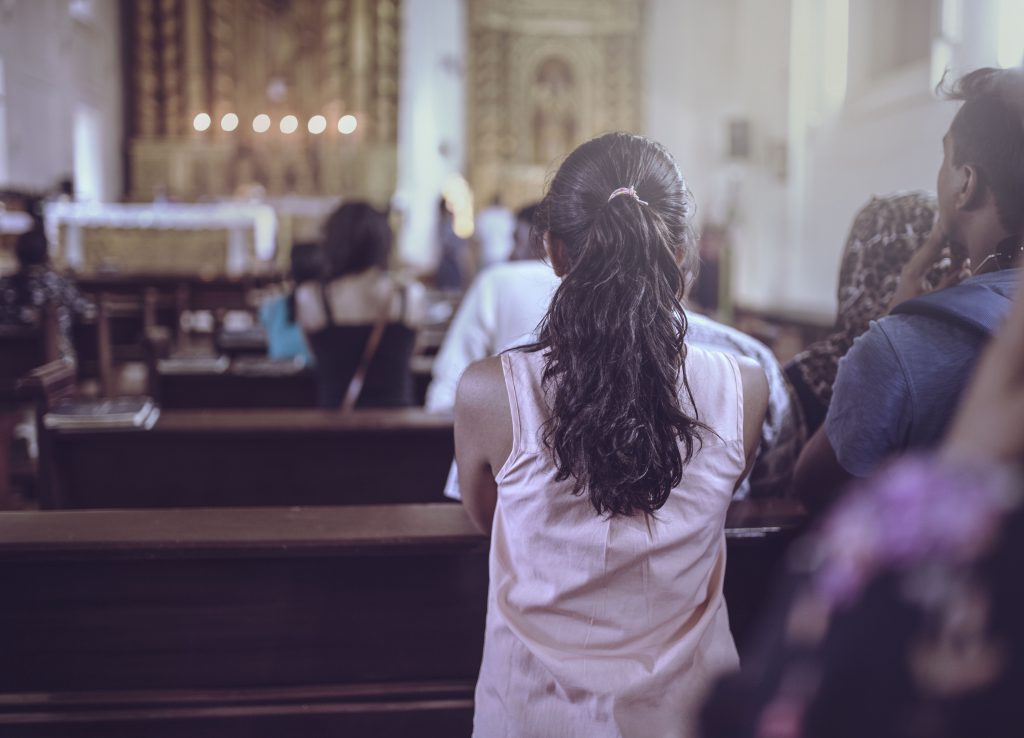Why do you go to Sunday Mass? Sometimes we can all lose sight of the reason and purpose for attending and participating in Sunday Mass. Let’s examine a couple of principles of this liturgical prayer:
> First, liturgy is a time of communal prayer, but so often it becomes a time of personal prayer; and
> Secondly, liturgy is something we do, not a performance we observe.
The word “liturgy” comes to us through history as the combination of two Greek words: “people” and “work.” Its original meaning was that of a public work or project done to build up a community. This sheds light on how we, as Church, use the word today. The Catholic liturgy is something we do, something we build together. It is a common act of worship-filled work.
But, why is it that very often when we go to Sunday Mass we are not thinking of this time as work? We look forward to it more as our own personal quiet time with God, and we don’t connect with the other people surrounding us or with the work that is going around us. To participate in “work” means to be active and involved in a project or a purpose.
Many of us come to Mass and remain inactive, not singing or responding to the prayer dialogue, not really listening to the Word of God or to the prayers. This leaves our fellow “workers” doing all the labor on our behalf. The Mass is not just the work of “Father” or of the people active in the various liturgical ministries. As a baptized member sitting in the pews, we are not just “receivers” of this prayer.
Going to Mass is not like going to the movies, or to a concert, or to a theater production. The liturgy requires our active and conscious participation. We need to regularly be reminded that we are also “givers” and “fellow workers” in the liturgical vineyard! We don’t attend Mass just to “receive” the Eucharist, just to be close to the holiness of God. We share in communion to be a full part in the one body of Christ, to participate in the work of God in the world today.
Here’s a suggestion on how to help move beyond using the Mass as our personal prayer time: We can start by taking a serious look at our lives. Are our minds and hearts and souls at rest most days? Probably not very often, right? We are all pulled in a million different directions and, at the end of every day, there seem to be more questions than answers.
In his recent book “Thank You for Being Late,” New York Times columnist Thomas Friedman speaks of the need in today’s frenetic world to find a way to stand strong in the “eye of the hurricane.” The “eye” is where the air is quiet, while the strong winds circle wildly around it. This image provides a picture of the need we all have today to cultivate a healthy and strong spiritual “eye.”
In this complicated and stress-filled world, where the rapidity of continual challenge and change is unnerving and unsettling, we all need more personal prayer time with our God to help us keep our lives rooted and purposeful. We need to build a prayer life that calmly anchors us in the values of human decency and respect and in the Gospel of Jesus Christ. Our faith and trust in the benevolence of God is what will help us stand firm.
If we make the time and take the time to center our lives in prayer, then our interior lives become for us the “eye” in the storm, then our hearts and minds are ready to be active workers in the liturgical vineyard. Rooting our lives firmly in a discipline of personal prayer, we can move onto this more authentic participation in the Mass. Then we bring our best selves to the work of liturgy required by our baptismal promises.
“In order that the liturgy may be able to produce its full effects, it is necessary that the faithful come to it with proper dispositions, that their minds should be attuned to their voices, and that they should cooperate with divine grace lest they receive it in vain. … The spiritual life, however, is not limited solely to participation in the liturgy. The Christian is indeed called to pray with his/her [community], but he/she must also enter into his/her chamber to pray to the Father, in secret; yet more, according to the teaching of the apostle, he should pray without ceasing.” (Constitution on the Sacred Liturgy, Second Vatican Council, No. 11-12)

